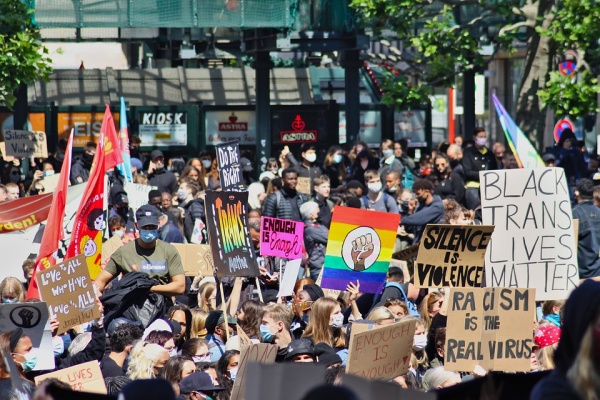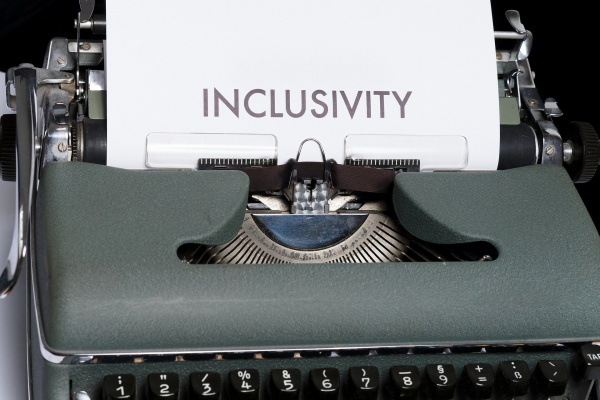2020 Building cohesive communities: On local governments’ fight against rac…
페이지 정보
본문
Building cohesive communities: On local governments’ fight against racism
July 31st, 2020
Written by UCLG-CSIDPHR Secretariat

As the killing of George Floyd sparked a massive wave of anti-racist demonstrations not only in the United States but also across the world, it is now even clearer how racial discrimination remains one of the major human rights challenges of our time. As a matter of fact, racism has also been exacerbated over these last months due to the social impact of the COVID-19 pandemic - fuelled by more episodes of anti-asian racism and aggravated discrimination against vulnerable groups. Local governments have quickly reacted to these challenges, building many times on their previous experience as human rights cities or their close connection to community-led initiatives. This articles explores some of the most recent local proposals in this field, trying to find common ground between initiatives and exploring cities’ most recurring areas of intervention.
Preventing police brutality and fostering social cohesion
Many local governments in the United States have actively engaged with the recent wave of anti-racist protests and against police brutality. In doing so, they tried to locally address the core demands made by protesters, as well as to continue fostering the nationwide debate on structural racism. In regards to police brutality, the Minneapolis City Council was among the nation’s first to propose disbanding its police force, and committed to ban chokehold and neck restraints. New York also decided shifting $1 billion from its police force to civilian agencies working on public safety and reinforcing youth centres. Other local governments also passed specific protocols to prevent police brutality, such as the ones of Atlanta or Albuquerque. Mayors’ political leadership has also enhanced government responsiveness to the demands made by protestors and contributed to reinforce social dialogue, as shown by the example of Atlanta’s Mayor Keisha Lance.
Debates around racism have reached other territories outside of the United States as well, from Canada - with Ottawa officially recognizing racism as a “public health issue” - to France; a country which saw the organization of demonstrations gathering an unprecedented number of participants. Those territories which have structurally been more affected by police brutality, as the Seine-Saint-Denis Department, have actively engaged with this wave of mobilization too. Indeed, a recent article published by the same department analyzed the connection between police brutality, racism and social inequality in the territory. Its local council also developed a report focusing on the monitoring of discrimination within the territory, stressing for example how 9 out of 10 young locals believes Seine-Saint-Denis residents are discriminated by the police force and law system.
In the United Kingdom, local authorities have also addressed another topical issue in this debate, which is that of statues commemorating slave owners and traders or individuals involved in the country’s racist past. The City Council of London was among those to promote the removal of statues of slavers’, while the UK’s Local Government Association launched a public communiqué condemning racism and calling to support its members’ regarding the statues’ debate. To that end, the Association developed an advice note “to help councils work to ensure all sections of the community feel heard by decision-makers and each other”, while emphasizing council’s role in maintaining and enhancing community cohesion.
Anti-asian discrimination and others forms of racism triggered by the COVID-19 pandemic
Anti-racist protests after George Floyd killing erupted in the context of the COVID-19 pandemic, which in itself had already fuelled racism against marginalized communities and vulnerable groups worldwide. One of the pandemic’s most direct impacts in this regard is that of rising anti-asian racism and xenophobia worldwide, as recently recalled by Human Rights Watch. Several examples of local government taking action in this field can also be found in countries like Canada, where cities such as or Montreal launching their own initiatives to prevent anti-asian sentiment and to protect residents against any form of discrimination. Both Vancouver and Montreal focused their initiatives on showing political leadership - for instance, with Montreal’s city council unanimously denouncing anti-Asian racism - or putting in place communication campaigns - as in the case of Vancouver’s #HealthNotHate campaign.
Towards structural local government policies and cooperation to combat racism

Credits: Markus Winkler (Pixabay)
Anti-racism and action on non-discrimination has been a topical issue in many human rights cities’ agendas over the last twenty years. This has always been, for instance, one of the main priorities of Barcelona’s Office for Non-Discrimination - a pioneer municipal policy put in place more than 20 years ago which has focused on providing psycho-social and legal assistance to victims of discrimination. A recent report by the cities’ human rights department and local civil society stressed how racism remains the main reason of discrimination in the city. New York’s Human Rights Office focused on the other hand in developing a solid, human rights-inspired legal system to protect victims and provide them with channels to report, while fostering dialogue and community engagement. In Costa Rica, Goicoechea also focuses on fighting discrimination against migrants by fostering social dialogue and implementing citizen participation methodologies. In a similar vein, the Moroccan local government of Nador has cooperated with civil society to organize public events that allow to combat stigma against migrants.
Back in Europe, the Italian city of Torino has recently taken an unprecedented step forward at a national level, by officially recognizing anti-racism as a common good. Indeed, after an initial rise of anti-asian attacks within the city, the local government committed to implement a local action plan against hate crime and called for strengthened cooperation with civil society, police forces and the law system to go beyond sectoral intervention. Torino seeks to take action in a wide range of policy areas, and to involve all social and government stakeholders in the fight against racism as a responsibility involving the whole society.
Local government cooperation has played an important role in fostering cities’ commitment towards anti-racism, supporting policy development and bolstering political leadership on the matter. In Latin America, the LAC Coalition launched a pioneer cooperation experience between cities in the region focusing on the exchange of experiences and the development of local action plans to combat racism and discrimination. So far, Quito, Medellín, Mexico City and Montevideo adopted their own local action plan on this matter. In Europe, its partner coalition - the ECCAR network - also gathers cities that committed to a 10 points action plan on non-discrimination fostering inter-departmental cooperation and a reinforced engagement with civil society and local human rights defenders. Other regional coalitions focusing on city networking on anti-racism are also being developed within Africa and the Asia Pacific region after the support of UNESCO.
- previousPreview of the 10th WHRCF 20.07.31
- nextWHRCF “Blended Learning Course on Local Government and Human Rights” 20.06.25

